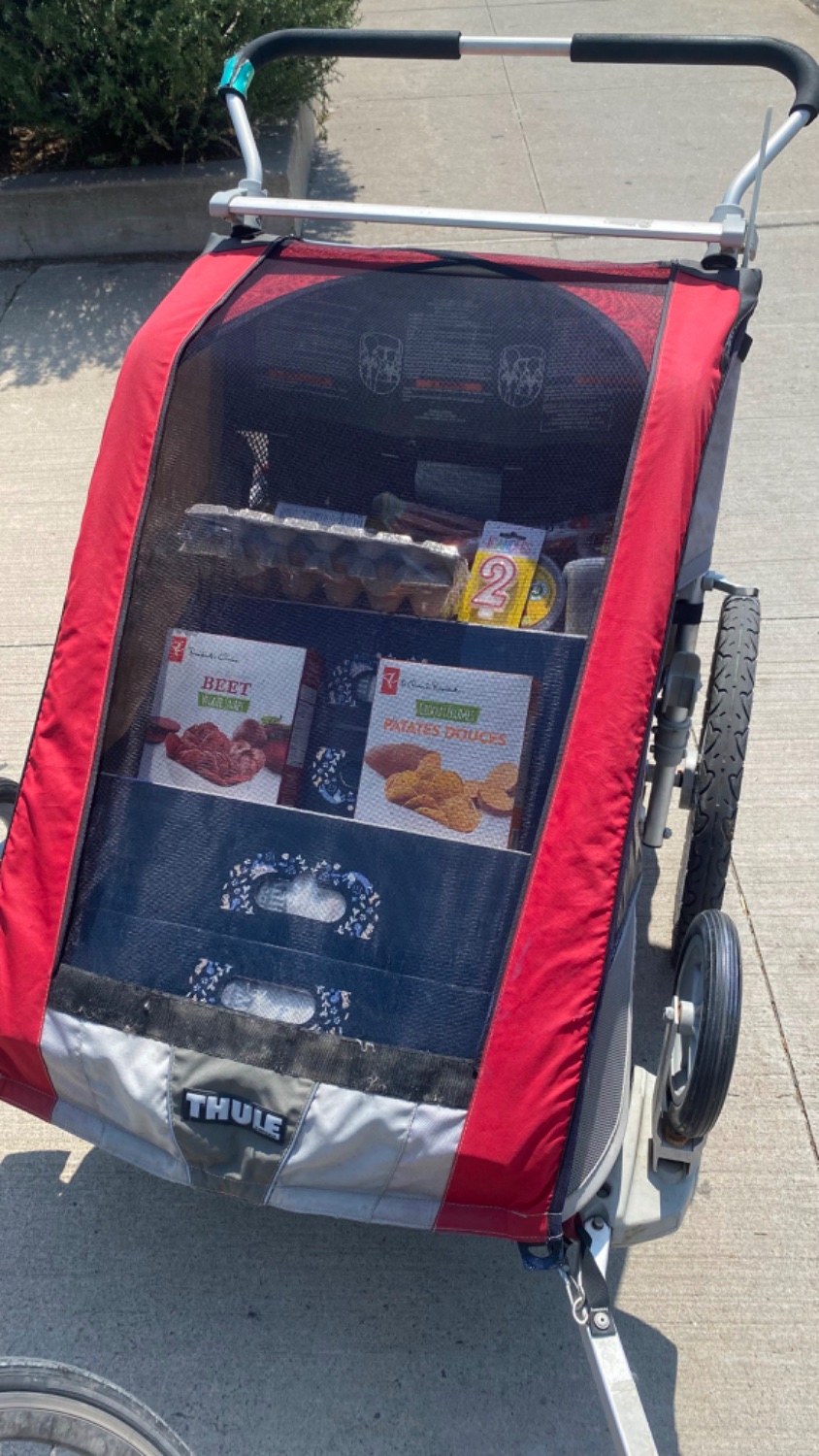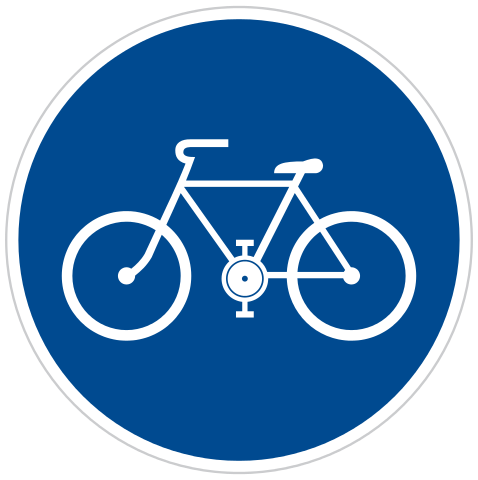So I have “new” bike (subjectively) about 9 months. And I spent about 2000 € on it (bike, and some accessories - rack, bags…) and I can tell that it is lot of bike for not that much money.
So now when I look back I can’t see it as “expensive” bike, just as reasonably priced for its purpose. I use it every day to commute and as bikepacking/touring bike so now it has ~6000 km.
So how much are you willing to spend on bike?
Edit: So I read your comments and I probably need to clarify little bit.
- I use the bike for everything instead of car so even nicer more expensive bike for me is justifiable.
- I also think that the bike industry is bonkers right now about shiny new expensive things.
- For me there is few types of riders and all parties try to upsell them some shit, there aren’t any 500€ bike with flat bars and rigid fork where I am. All of the bikes at this price point have shitty suntour fork, bad saddle, useless pedals and shitty tires. From my perspective they are expensive on the parts that don’t matter and cheap out on stuff that matters. If someone sell something like that (flat bar gravel with quality parts where it matters) it would be gamechanger.
- I had to build my bike, nothing like that (full steel gravel/bikepacking/do it all bike) wasn’t on the market/second hand market. It add to the price a bit. And it was about month before the prices get down to reasonable levels after pandemic.
The bike industry has SERIUS diminishing returns as you go up in price.
Almost every component of a bike can be had for pennies at the cheap end, and hundreds if not thousands of bucks at the expensive end.
But really, it depends on what exactly you’re doing. If you’re competing, maybe shaving some grams off is worth an exorbitant sum.
But for me? I’ll buy the cheapest part I can find, that isn’t outright trash. I’ll pay for ergonomics, or some parts in accent colours…
But at a certain point you start paying for things that effectively make little to no difference. An extra gear you won’t really benefit from because it doesn’t actually expand gear range.
More expensive bearings that’ll gain you a fraction of percent in pedaling efficiency.
Heatsinks on brakepads that were never going to overheat.
When buying a bike, I start by looking at the frame. Everything else can be changed. A frame will last forever when taken care of, but if it has a problem, it’s essentially impossible to fix.
After that, I look at the parts list and consider if it’s a good deal, how much I’d have to spend on any changes I’d want to make.
But for me? I’ll buy the cheapest part I can find, that isn’t outright trash.
I mean the personal definition of thrash is really what this question boils down to.
Assuming I was to be using it a ton, maybe up to $1k. I don’t, which is why my current one I got for about $250 (though I have had to pay another $200 for repairs over the last couple years).
Yeah, I’m in this boat. I have a $300ish Mongoose Blackcomb that’s lasted me a couple decades at this point. All I’ve had to do was give it new tubes and tires once
There’s a price point where bikes ship cheap Shimano/Tektro/TRP hydraulic disc brake and a basic Shimano Alivio/Cues group set on an aluminum frame. Below that things are significantly worse in form, function and durability. I think this is somewhere between $600-$1000 these days. I wouldn’t buy anything below it.
Above that the diminishing returns curve begins diminishing but it hasn’t diminished yet. Next up you get to 105/SLX, and air suspension. Then returns really start diminishing. Personally I would pay for 105/SLX on a pre-built without hesitation. I don’t ride suspension but if I did, I’d get an air fork for the adjustability and weight. With all that said, Cues kinda makes 105/SLX a bit less desirable. If I were equipping a new bike today I might use Cues and spend the remainder on other things like tires and brakes.
Speaking of weight, weight is worth paying for if you’re going to be carrying the bike. Bikes starting in the $600-$1000 price band are already easy to carry. Going a bit above shaves off another kilogram or two.
Lighter wheels are something that is worth spending money on. And I’m not talking about carbon wheels. Just good, light inexpensive aluminum wheels from Shimano, DT Swiss, Mavic or even some AlexRims coupled with light tires. The difference in feel while accelerating is quite significant. Many bikes in the $600-1000 segment already come with good enough wheels in this regard. They sometimes need lighter tires.
You will not catch me paying for carbon frames! Carbon is too difficult to live with. You have to be careful with keeping it’s surface intact. You have to avoid dings. You have to examine it after every cash for cracks, which you can’t effectively do without ultrasound… Aluminum for light, steel for heavier loads. I do ride carbon forks though. They’re much easier to replace when needed.
I think that even cheaper group sets from shimano are pretty solid. What puts me off these cheaper bikes are cheap tires, wheels, saddle, pedals, grips.
The little things that add up, why when you buy bike you have to change tires in few months because they get bad, why your grips got sticky in few weeks, why you always have saddle soars…
I even consider upgrading to cues when they release road leavers.
You’re right on the wheels and ergonomics. Just getting an appropriately wide saddle for your sitz bones and body angle is a phenomenal upgrade for anyone who rides more than a few km at a time. I’ve seen too many people ride sitting on their soft tissue between their legs and be in pain when they do 10km.
Cues is cheap though and it replaced all the cheaper Shimano group sets. Yes I know there are still bikes with Alivio an such but I think those are using old stock. Cues should be cheaper than what you have. It is nice though and built like a tank.
Yes it is the appeal of it, cheaper cassette, chain and you should have same derailleur for road and mtb so you can get insane gear range. I would like to change to 40-30 in front and at least 11-42 cassette.
Also I will probably need to change cassette soon, the aluminum don’t like heavy bikes in mud.
Drop to 1x and add a small hub motor with a small battery. 🤭
I’ve been riding an SLX M7000 cassette for more than 5 years now. I have been neglecting cleaning and lubrication for 2 years. I still can’t kill it. Chain wear is fine too. That said I ride mostly in the city and the chain is KMC for ebikes even though I don’t have a mid drive. 😂
I like to have larger gear range, 1x wouldn’t cut it.
Yes, steel cassette lasts quite a bit longer on my old bike I had it for about 6 years (3x 9speed). But I went for “shimano suggested parts” and because it is a trend to have light gravel bike they suggest aluminum.
Now I will change it for steel one and biggest I can manage to get in the grx derailleur. Fortunately the bike is like Lego for adult tinkerers. So I may do something that isn’t exactly recommended in manuals.
I am not exactly ready for SunTrip challenge so I will leave the motorization for another time.
Disagree on carbon. Unless you’re in a pretty gnarly crash, the odds that you’re going to break the frame are quite low (unless you’re talking about some of the ridiculously expensive frames that have disclaimers about not being suitable for riders over 160#). Carbon has the benefit of being entirely immune to corrosion of any kind, although the resins can, eventually, weaken from UV exposure. I would not suggest steel at all; it’s entirely too easy for the frame to start rusting. That’s a real problem for something that you commute with, and even worse if you live in an area where they salt the roads. Aluminum should be great for most people. Be warned though - aluminum can rot out via galvanic corrosion if you ride on salted roads in the winter and there’s another metal (brass, steel) in contact with the aluminum; I lost a few wheels that way. If you really love the way that steel feels, but don’t want to worry about rusting, and you have very deep pockets, consider titanium. Titanium is also very resistant to corrosion.
For something that you’re going to ride every single day, $2000 US seems about right. My last bike was about $1700 as a model-year closeout, about a decade ago, and was in the 18# range. Coming from a 26# 29er that I’d set up for road use, it felt fantastically quick and nimble.
Personally I wouldn’t spend more then $400 for a top end bike. I think the industry has a culture of scamming and price gouging. They’re still just bicycles, regardless of whatever special organic grassfed steel they use or w/e.
$400 won’t buy you a top end bike by any definition. Do you mean $4000?
Oh, I know it won’t, I was just answering the question of what the optimal price would be.
I wouldn’t buy a $2000 bike because I simply don’t believe you can make a bike that justifies that price. Like, whatever design features or magical materials they might claim use, I don’t believe it’s any more than sales tactics to inflate prices.
You’re wrong. A $2000 bike will be better in every way. If you only ride occasionally, the difference might not be immediately apparent. If you ride regularly, you’ll definitely know.
@Diplomjodler3 @retrospectology Diminishing returns apply to bikes, just as they apply to everything else: the $15k pro-spec Specialized SL8 isn’t more than ‘twice as good’ as the $6k SL8 at the bottom of the range. But $400 doesn’t buy you much bike these days, and a $2k bike will be measurably better in every single way. Depends on what you’re doing really. If you’re riding to the shops a couple of times a week, not worth spending extra. If you’re doing 1,000 miles a month, definitely is.
@Diplomjodler3 @retrospectology Everyone will have a tipping point, where they couldn’t justify spending more on a bike for the improvement you get. Mine’s around $4k: I couldn’t really justify spending more for better components, lighter weight, etc. Much as I’d like to. But I could easily justify a $2k bike. It’s a different number for everyone though.
I never said anything about really expensive bikes. Of course on those you get diminishing returns and they’re not worth it for most people. But if you cycle regularly for anything longer than a few kilometres, spending on a decent bike is very much worth it.
@Diplomjodler3 yeah, i absolutely agree. diminishing returns applies from dollar zero, though, and everyone’s tipping point is going to be different. someone saying they couldn’t justify spending $2k on a bike is entirely reasonable. Someone saying they don’t think it *can* be justified is wrong, though :-)
@wav3ydave @Diplomjodler3 experience in other domains makes me wonder if that’s necessarily true though. I’ve seen plenty of people but “better” computers, appliances, cars that were more expensive but not better for their purposes.
Like spending more on slightly lighter parts isn’t really an advantage if those lighter parts break more often than cheaper heavier parts. Or are harder to repair or replace in the field from non specialist ships. Or make your bike attract thieves…
I am with you on that but because I use it a lot I had to bite the bullet and spend a lot.
Worst scam is in my opinion the cheap pre-builts, I think that it is possible to make cheap bike but they cheap out on wrong components and you end up spending much more on maintaining it.
Yeah, I don’t judge people for buying the expensive bikes or anything, I just couldn’t bring myself to do it.
It depends on how much you use it. If you’re going to ride the bike a couple of thousand hours, $2000 is good value. If you just ride it once in a while, it’s a waste.
Was looking at ebikes recently as maybe a car replacement. Holy hell those prices escalate quickly. Like Tern bikes going up to like $6.5k. Every car I’ve owned so far has been cheaper than that! And for something someone can just chuck in the back of a pickup and disappear with in seconds.
In what situation would you need an ebike over a regular bike? Or let me rephrase, what situation do you perceive as warranting an ebike over a regular bike?
I got mine to get to work in my (hilly) city in the Southeastern U.S. with high summer temperatures. It’s nice to arrive at work or appointments without sweating buckets.
Never owned one, not sure. Mostly just kind of curious. A cargo e-bike might be nice for supply runs and things like that.
If your distance is not greater than 10km one way, and relatively flat, you can probably easily do it with a decent commuter and a trailer or used chariot.

Can recommend.
Kind of prefer the idea of a cargo bike than a trailer. Maybe it’s just the cool factor. Been hoping to see a used big easy around my local but not yet.
I don’t know, this isn’t really about necessity. I’m probably just looking to add to the collection.
I don’t have use for e-bike but I was looking at omniumcargo e-bikes just for reference and was also surprised that they start at 5000€.
But you can get cheaper e-bikes around 1500 € but with questionable quality of battery. I talked to someone who sells them and his opinion is that more expensive bike the better battery you get, motors and electronics are same.
Budget ebikes are around $2000 CAD. And I guess it depends on your area but a good lock that can only be defeated by a handsaw is $200, tracking devices are also an option.
Also you might be able to get a car cheaper than $6.5k but what kind of maintenance cost is that going to have? Not to mention gas, insurance, and parking.
Did you type all this out thinking I wasn’t aware of bike locks (in a bicycling community no less) and the cost of my own vehicle?
I think 2000€ ($2200) is about right. That gets you a Brompton C Line and all the accessories you need.
Or it gets you a perfectly fine road bike, gravel bike, or hardtail mountain bike, if those fit your riding style better.
With road bikes, you can spend obscene amounts of money chasing marginal weight savings. I will never understand spending $10000 on a road bike to save the amount of weight you lose by pooping.
I am willing to spend a lot more on a mountain bike. Good full suspension and robust wheels with high-engagement hubs hits $5000 easily.
you can spend obscene amounts of money chasing marginal weight savings.
Your point stands, but it’s all about the “aero” now rather than weight.
@plactagonic ~2x the minimum.
But as with most fitness gear, second hand can be a real bargain. Still spend more than the minimum, but get the 4x bike for 1.5x.
I dont know but i feel like there might be very drastic price differences between countries/continents.
If i wanted a high end bike, i would buy a used one for like 1000€. Often you can get 4k€ bikes for a fraction of the price.
For a city bike that rarely goes more than 10km at once, paying more than 600€ is probably a waste of money.
But yeah if you do lots of tours, a 1500-2000€ bike is gonna be more enjoyable but anything beyond that seems overkill unless you are doing competetive sports.
Yeah I think that I spend the upper limit, after that you get diminishing returns - few grams here and there nothing more.
Because most things in the bike world are nicely standardized you can really save a lot with used bikes tho. Often bikes with “broken” parts cost much less and with an afternoon and a lil bit of money for replacement parts you can get something much nicer than your budget might allow for.
My current bike is a do-it-all touring bike, which I bought for $500 USD during COVID lockdown. I’d probably pay more now, but I think it’s a lot of value for the money. Maybe I’d spend up to $1000 USD for a better groupset, but I honestly have been pretty happy with the Shimano Tourney set it came with. they get the job done and need minimal adjustment over several thousand kms. And let’s be honest, my fitness level is the thing holding me back, not a few grams of weight on the bike.
I don’t have a car and biking is my main form of travel so, like you, I decided to treat myself to something nice, as in new and not second hand.
190€.
In two years I changed a wheel and two tires: 45€.
Also, if you are into environmental impact, please avoid Aluminium: https://solar.lowtechmagazine.com/2023/02/can-we-make-bicycles-sustainable-again/
Yeah, let’s not hyperanalyze bike sustainability. If you are riding a bike for commuting, you are drastically more sustainable than if you chose to drive. There isn’t any strong reason to try to muddy the victory.
Sure, some people are just into min-maxing stuff like this. I think the more interesting information is about the impact of bikesharing and how an electic bike can be more sustainable than a traditional one.
Like 190€ new? I see the garbage that is sold at this price new and don’t see any point in these bikes.
On the other hand second hand bikes at this price point are pretty solid (if you know where to look for them).
Edit: like sold here
Yep 190€ new and surprisingly I never show up late bespite how garbage it clearly is.
I absolutely think that it is possible to build solid bike at that price point. Unfortunately all I see here are bikes that use really cheap parts so anything usable starts at 500€.
I can get really nice second hand bike from bike shop near me at this price you can get usable bike under 100€ maybe even 50€. He goes through everything, repairs it and sell them.
I forgot another key factor: the ease of mind and flexibility of parking it anywhere without the looming fear that it will be stolen.
If they steal it it’s not the end of the world AND they don’t want it anyway because it’s cheap.
Yeah I have an option to park it inside my workplace. So it is big plus that I don’t have to worry about it most of the time.







